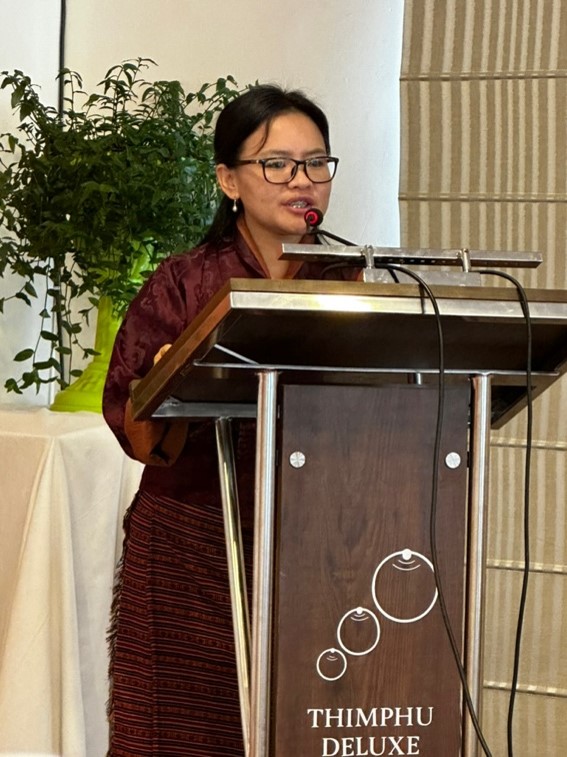- About Us
-
Who we are
-
- Publications
-
- ADPC Academy
-
MediaADPC'S NEWS
Strengthening Health Emergency Preparedness: Bhutan Reviews Hospital Preparedness for Emergencies (HOPE) Training Curriculum Strengthening Health Emergency Preparedness: Bhutan Reviews Hospital Preparedness for Emergencies (HOPE) Training Curriculum
29 Jul 2024
Thimphu, Bhutan
Thimphu, Bhutan – On July 29, 2024, the Ministry of Health, as the leading authority, hosted a pivotal technical consultation to review and adapt the Hospital Preparedness for Emergencies (HOPE) training curricula in Bhutan. This critical meeting, under the guidance of the Ministry of Health, brought together an array of partners from the Department of Public Health of the Ministry of Health (MOH), the Department of Local Governance and Disaster Management (DLGDM), and the Technical Curriculum Review Group (TCRG) of HOPE in Bhutan.
 Figure 1: Participants from the National Consultation Meeting on the review and adaptation of HOPE Curriculum in Bhutan
Figure 1: Participants from the National Consultation Meeting on the review and adaptation of HOPE Curriculum in BhutanHeld under the auspices of the regional program on Sustainable National Anticipatory Action through Preparedness in South Asia (SNAP South Asia) in Bhutan, the gathering saw active participation from experts across various areas of expertise. Key stakeholders included the Bhutan Red Cross Health Department, who brought their extensive experience and knowledge to the deliberations; emergency management specialists from Jigme Dorji Wangchuck National Referral Hospital (JDWNRH); DLGDM; and the Asian Disaster Preparedness Center. The national and regional experts provided valuable technical input to contextualize the HOPE curriculum and enhance its integration as a sustainable, long-term capacity-building program within Bhutan's healthcare framework.
 Figure 2: Ms. Deki Yangzom, Chief Program Officer from the Department of Public Health (MOH), providing her message on the institutionalization of HOPE in Bhutan
Figure 2: Ms. Deki Yangzom, Chief Program Officer from the Department of Public Health (MOH), providing her message on the institutionalization of HOPE in BhutanMs. Deki Yangzom, the Chief Program Officer of the Department of Public Health’s communicable disease division, inaugurated the meeting, focusing on strengthening the institutionalization of the HOPE training within the MOH's ongoing programs. Emphasizing the initiative's long-term sustainability, she highlighted the importance of securing accreditation to ensure the program's recognition and the awarding of Continuing Medical Education (CME) units by the Medical Council of Bhutan.
The consultation underscored the necessity of integration and support from various educational institutions, including the Khesar Gyalpo University of Medical Sciences and other medical and training bodies in Bhutan. This includes addressing hospitals' specific challenges in Bhutan during emergencies and their existing capacities to address these needs. This collaborative effort bolsters the nation's emergency preparedness and response capabilities, ensuring that healthcare professionals are well-equipped to handle emergencies effectively.After the meeting, a forward-looking plan was established to organize an instructors' training program for HOPE. This initiative aims to develop a core group of trainers in Bhutan to lead the national implementation of HOPE training using the national standard curriculum. This strategic move will expand the program's reach and effectiveness and ensure that the nation's healthcare system remains resilient and prepared for future emergencies. The meeting ended with a consensus on the need for continued collaboration and support to integrate the HOPE training program within Bhutan's healthcare system, thus strengthening the country's resilience in emergencies.
--------------------------------------------------------------------
The Sustainable National Anticipatory Action through Preparedness (SNAP) in South Asia is a regional program implemented by the Asian Disaster Preparedness Center (ADPC) and funded by the USAID Bureau for Humanitarian Assistance (BHA).
Latest NewsRelated Trainings
-